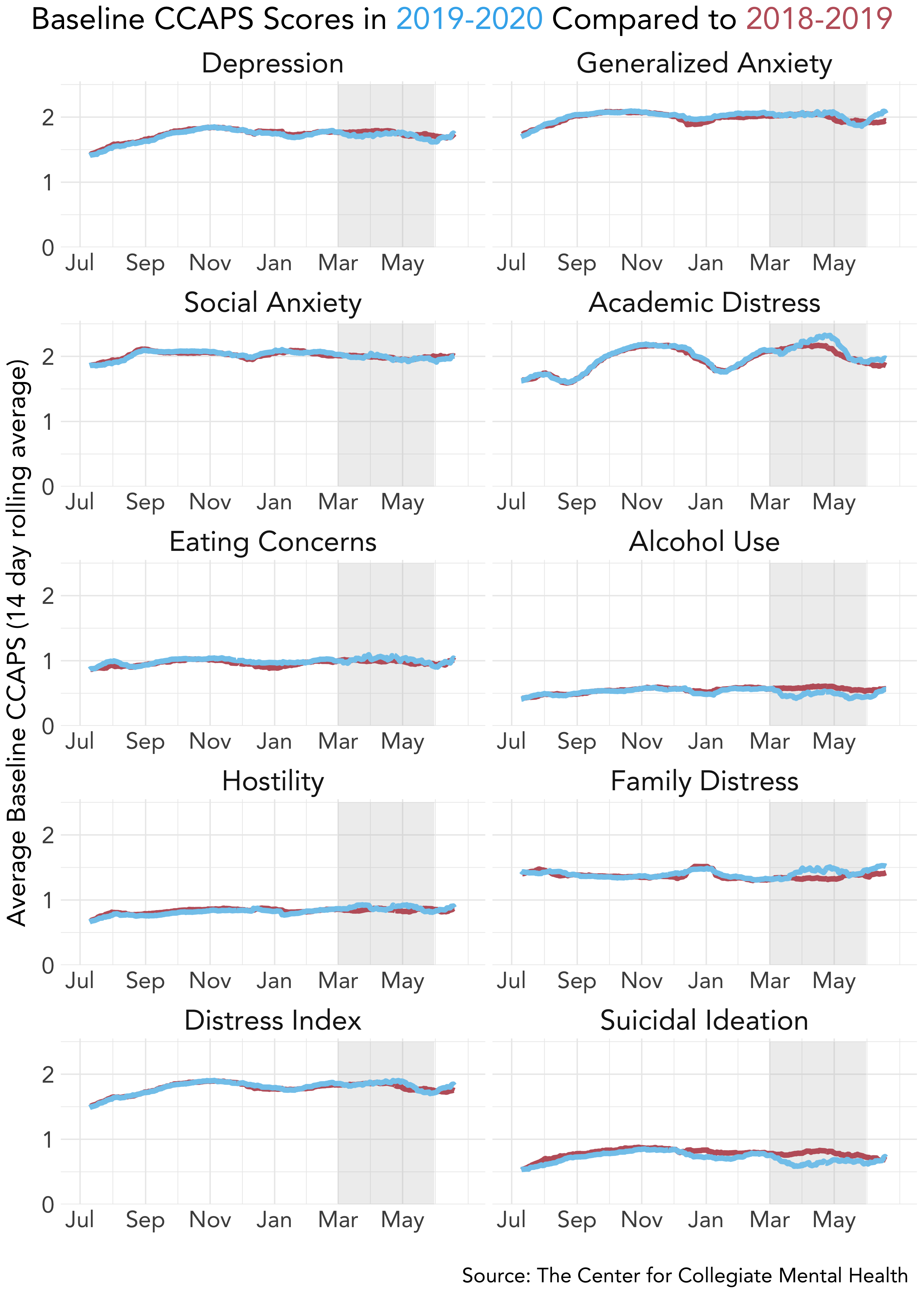Spring 2020: COVID-19 Impact on College Student Mental Health
COVID-19 has resulted in widespread concern about college-student’s mental health – both during the spring of 2020 and forecasting into the future. Recent surveys of college students have suggested that that college students’ psychological distress increased significantly following the COVID-19 response and shutdowns in March 2020. Because CCMH continuously pools national data from students seeking mental health services at college counseling centers, we were curious to see if our data support this hypothesis.
The Counseling Center Assessment of Psychological Symptoms (CCAPS) measures several domains of psychological distress in college students seeking treatment. Although the number of students seeking services decreased in the Spring 2020, CCMH was able to explore how average levels of student distress (at the time of seeking help) changed over the course of the year, including pre/post COVID, for a large group of students.
The charts below illustrate the average levels of client distress at first appointments across nine CCAPS subscales, and ratings on a single item assessing suicidal ideation, for 2018-2019 (red line) and 2019-2020 (blue line). Overall, average CCAPS subscale scores were very similar between the two years.

However, a few notable differences do stand out. Students who initiated counseling immediately after the COVID-19 response demonstrated slightly increased levels of Academic and Family Distress compared to the prior year. The specific CCAPS items, “It's hard to stay motivated for my classes” and “My family gets on my nerves” showed the biggest difference between the two years, with the post-COVID scores being higher. Overall, however, the differences on Academic and Family Distress were small, and distress levels largely returned to prior year levels by around May.
Conversely, Alcohol Use and Suicidal Ideation scores were slightly lower during the COVID transition than in 2018-2019. All other areas of psychological distress were relatively similar across the two years, as indicated by the overlapping lines.
While it has been commonly suggested that student mental health distress worsened dramatically following the COVID-19 response in March 2020, CCMH data shows that the distress of students seeking services was generally similar to the same time periods the year prior, with only slight increases in Academic and Family Distress. In other words, students seeking treatment during COVID expressed levels of distress that were largely the same when viewed at the aggregate level – suggesting that general reporting about worsening college student mental health may be more complex.
Stay tuned for future updates about COVID impacts.

